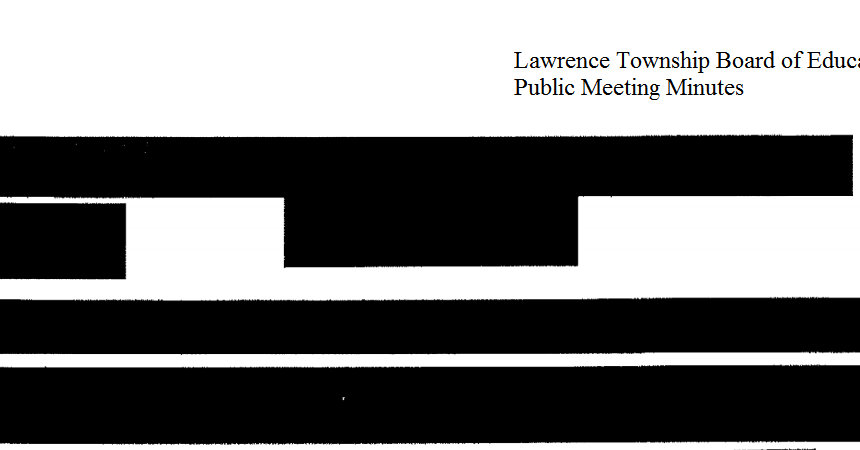Records requestors are often given redacted (i.e. black-lined) versions of the minutes from their town council’s or school board’s closed or executive meetings. Sometimes, the redactions are explained only by a vague description such as “on-going litigation” while other times no reasons at all are given. Because requestors aren’t quite sure what has been redacted, they are often hesitant to file a lawsuit to force disclosure of the unseen text.
New Jersey Foundation for Open Government (NJFOG) member Heather Grieco faced this problem in July 2016 when she requested the closed meeting minutes from the Lawrence Township Board of Education in Mercer County. The school board redacted several lines of text from seven sets of closed minutes (and also from one set of public meeting minutes!) and provided a “privilege log” that was intended to justify why each element of redacted text was exempt from disclosure under the Open Public records Act (OPRA).
Doubtful that the redactions were legitimate, Grieco teamed up with NJFOG to sue the school board. After being served with the lawsuit, the school board’s lawyers took another look and found that only one set of closed minutes really needed to be redacted to obscure the name of a special education student. The board’s lawyers found that all of the other redactions to the minutes were inappropriately applied.
We have placed both versions of the minutes (i.e the original redacted version and the unredacted (or more narrowly redacted) version) on-line in a tabbed PDF file. Included within that file is the “privilege log” that the Board gave Grieco to justify its redactions. Readers may find it instructive to compare the versions to see the nature of the text that the Board believed to be confidential.
Also, readers who pay taxes in Lawrence Township may want to ask the school board why Business Administrator Thomas Eldridge did not initially provide Grieco with the versions of the minutes that were ultimately provided after the lawsuit was filed. Such would have saved taxpayers thousands of dollars in court costs and attorney fees.

